The tale of Gladiator 1 is an epic story of betrayal, resilience, and justice. To this day, it remains a cinematic classic for its thrilling battles and its profound exploration of human values. The journey of Maximus Decimus Meridius—a Roman general turned Gladiator who rises above personal tragedy to restore honor and justice—mirrors many of the challenges we face in the modern world.
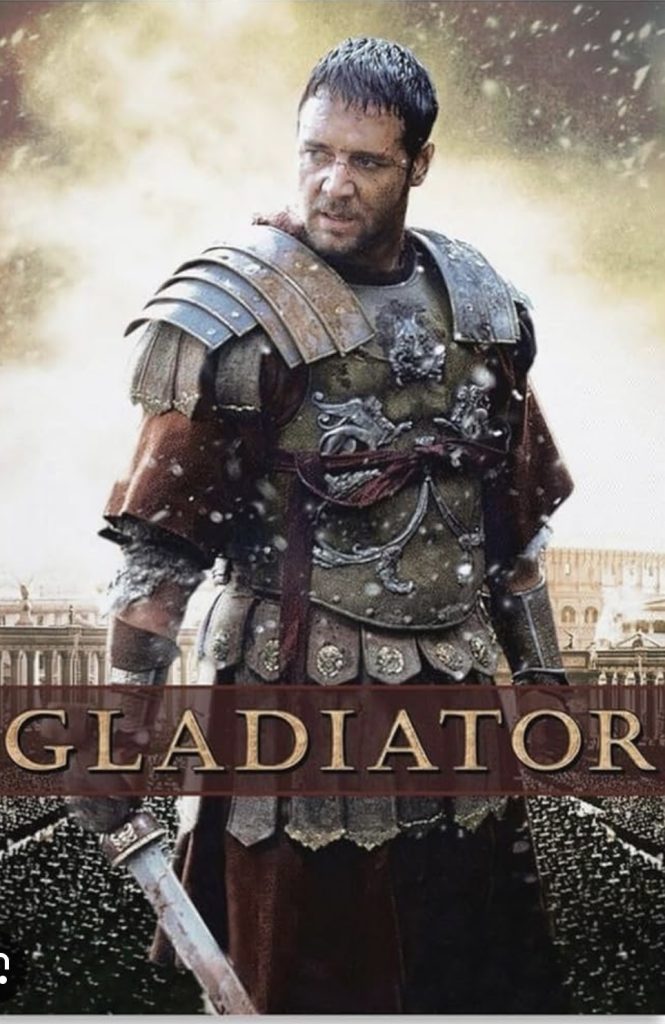
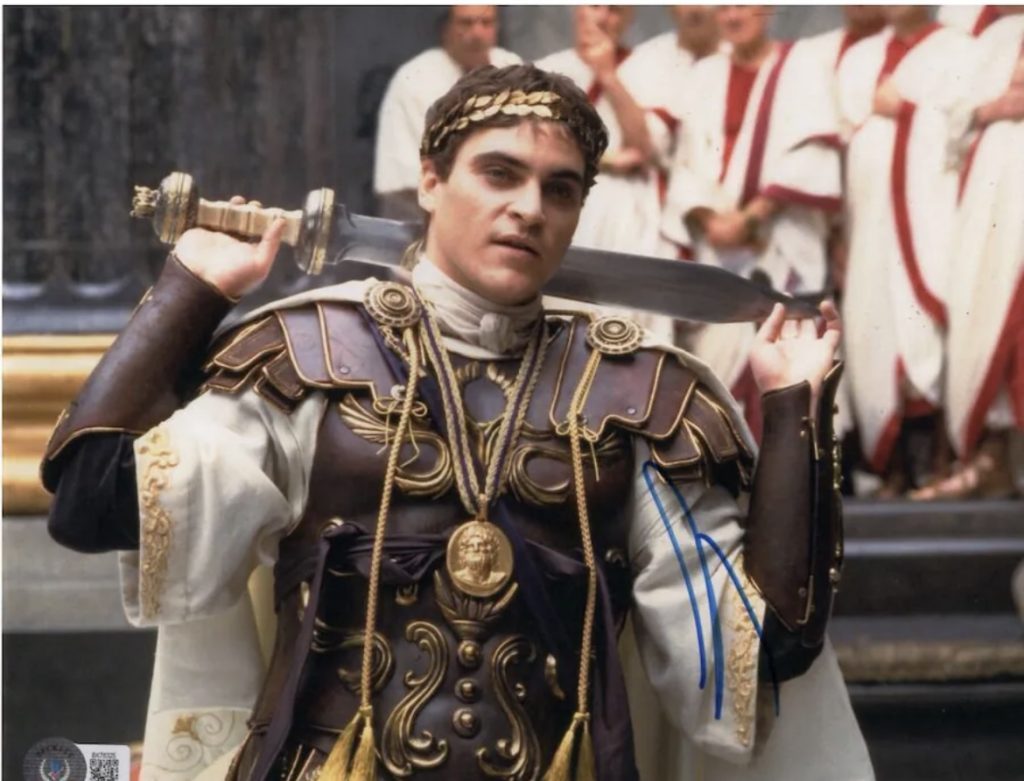
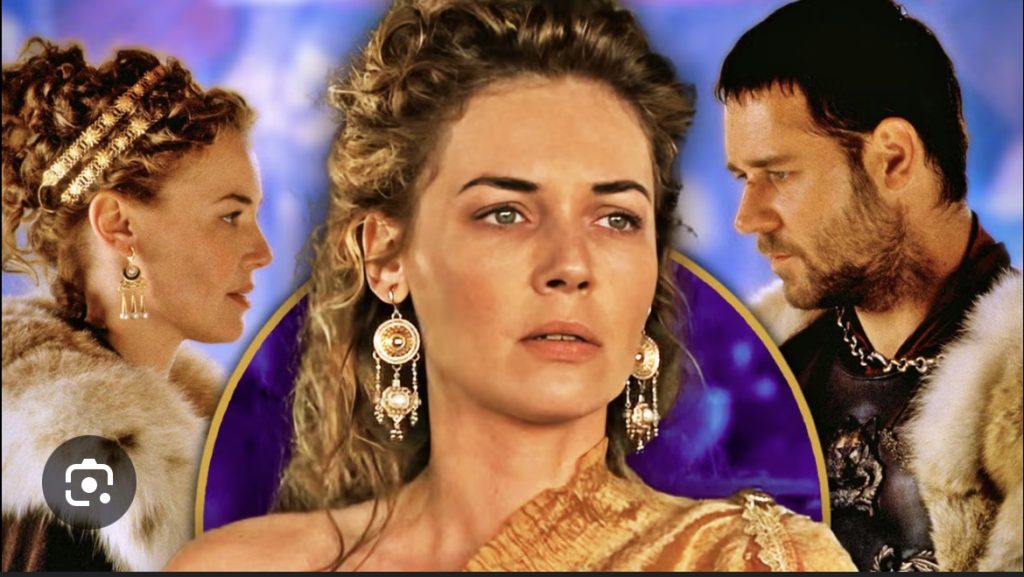
Maximus Decimus Meridius, played by Russell Crowe in Gladiator (2000). Joaquin Phoenix plays Commodus. Lucilla, played by Connie Nielsen.
While the setting is ancient Rome, the themes resonate with contemporary struggles, highlighting the power of integrity, the dangers of corruption, and the importance of resilience in the face of adversity. Let’s explore how Maximus’s journey parallels our present-day realities and the timeless lessons we can draw from it.
Fighting Corruption, Then and Now
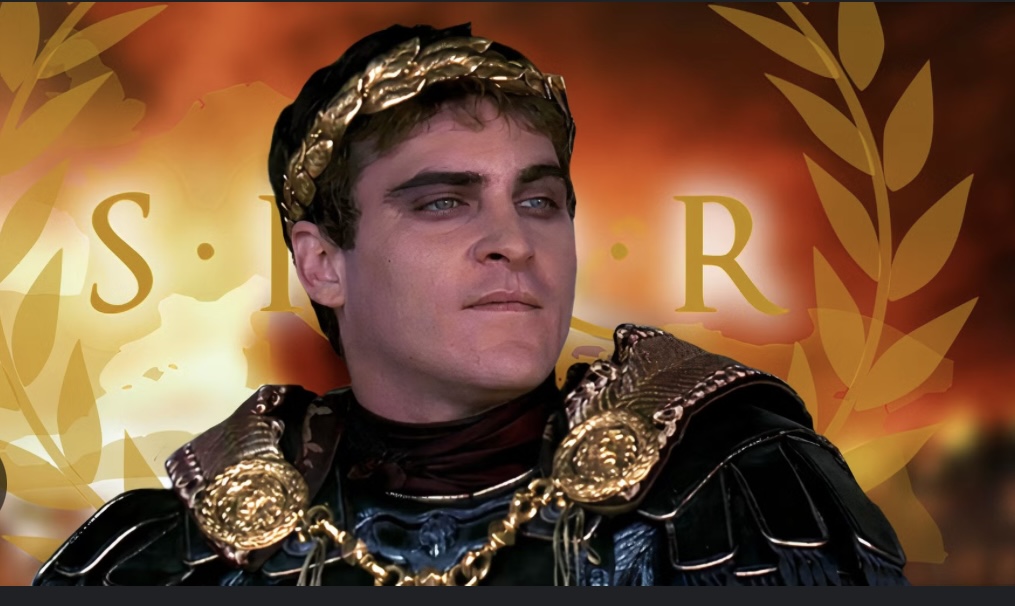
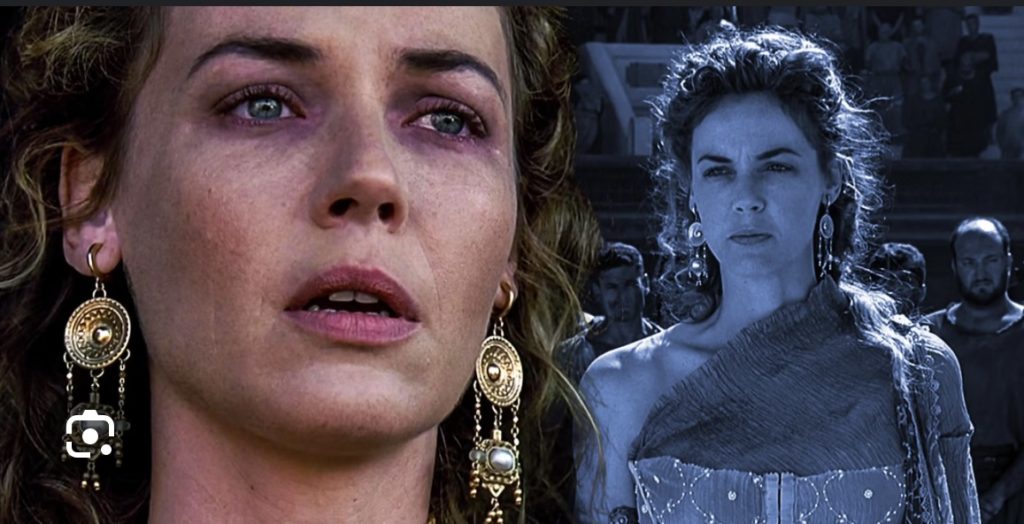
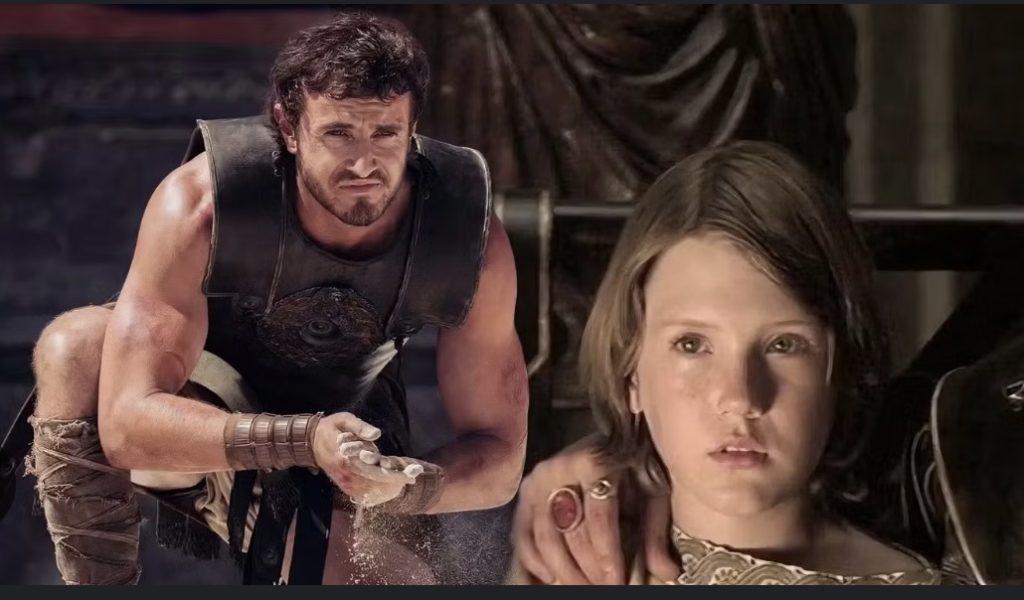
In Gladiator, Commodus’s rise to power through betrayal and murder reveals how unchecked ambition corrupts. He rules with fear, contrasting sharply with Maximus’s devotion to justice and the common good.
This theme resonates today. Corruption persists, from political scandals to corporate greed. Commodus’s behavior mirrors leaders who value personal gain over the public interest. At the same time, Maximus’s legacy reminds us to demand ethical leadership and accountability—values behind modern calls for transparency and reform.
Maximus’s resilience offers another lesson. Despite his family’s murder and his enslavement, he channels his suffering into a drive for justice. We see similar strength in our own world. Whether facing economic hardship, personal loss, or global crises like COVID-19, people continue working toward recovery and a brighter future. Viktor Frankl’s Man’s Search for Meaning teaches that, like Maximus, we can find purpose and growth in the darkest moments.
The Power of Loyalty and Honor
Maximus’s loyalty to the late Emperor Marcus Aurelius and his unwavering commitment to Rome’s ideals exemplify the value of staying true to one’s principles, even when faced with overwhelming challenges.
In modern times, loyalty to ethical principles can feel like a rare commodity, especially in environments driven by self-interest. Yet, stories of individuals who uphold honor and integrity—whether in business, politics, or personal relationships—serve as a beacon of hope.
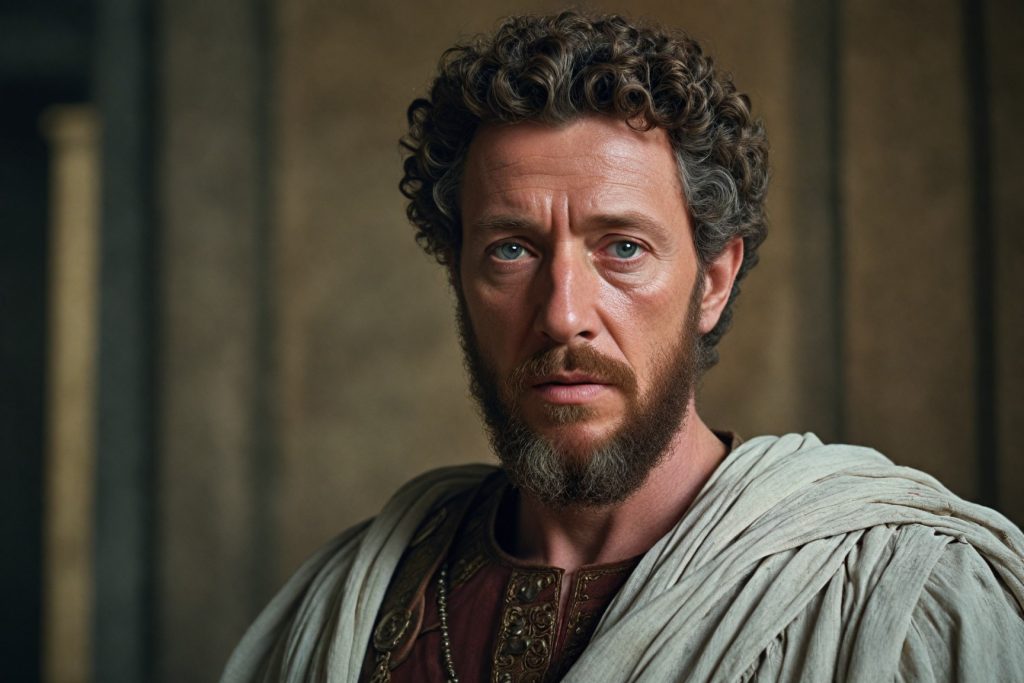
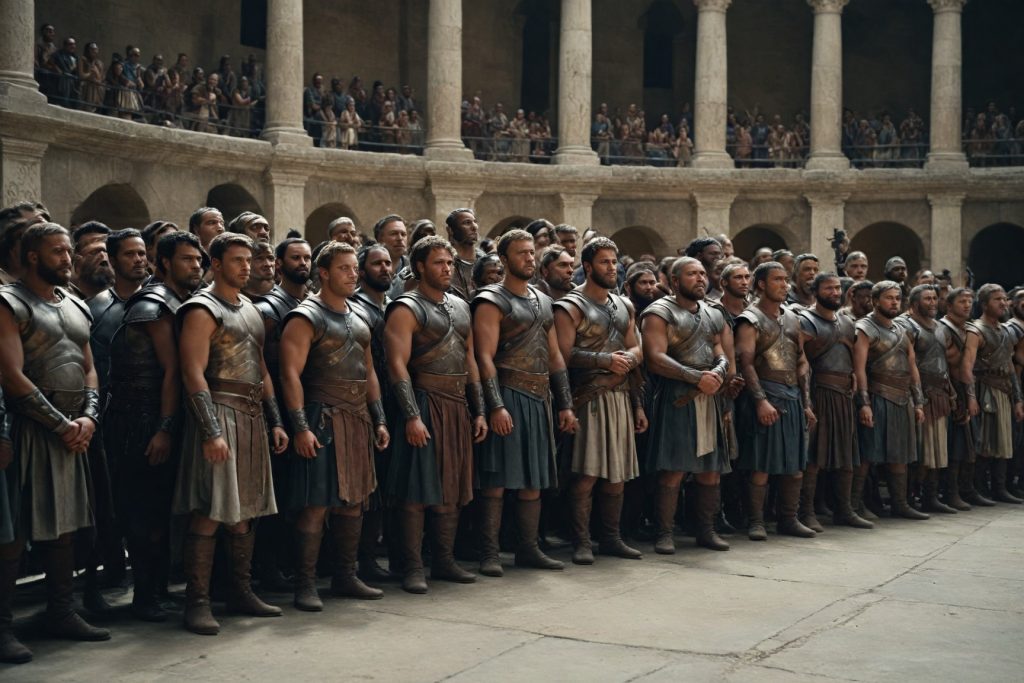
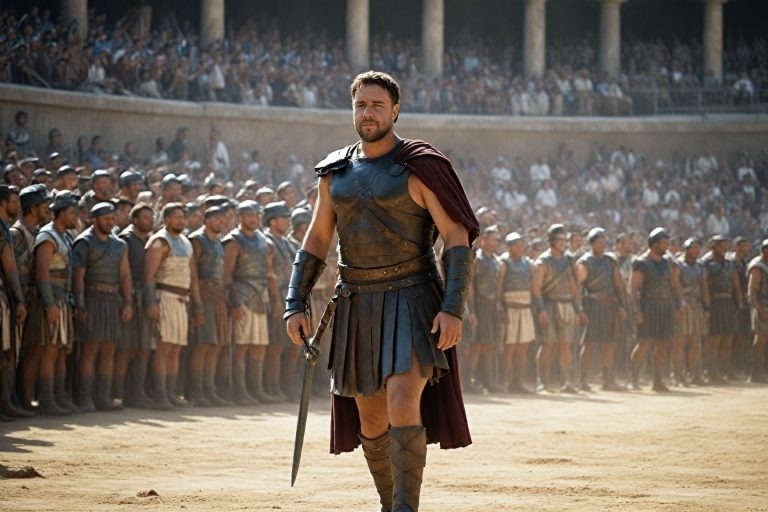
Caesar Marcus Aurelius Antonius Augustus is the full name of Marcus Aurelius, an elderly emperor of Rome who appointed Maximus Decimus Meridius as his successor.
Relatable Example: Leaders like Nelson Mandela, who remained steadfast in their values during decades of hardship, remind us that honor and loyalty to a just cause can inspire transformative change.
The Battle for Rome’s Soul: Gladiator 2
In Gladiator 2, Rome struggles under the influence of Macrinus, a wealthy businessman who secretly raises an army of gladiators to seize control. Unlike Maximus in the first film, Macrinus cares only about power and personal gain. His betrayal threatens Rome’s future and the people’s freedom.
In this story, Lucilla chooses to send her young son, Lucius, away from Rome to keep him safe rather than risk his life in a dangerous city. Heartbroken, she lets him go, not knowing that he will grow up in a humble village, become strong and brave, and eventually meet Macrinus—a ruthless, greedy man who recruited Lucius and unknowingly helps bring back mother and son together again. Unfortunately, as the story ends, Lucilla dies, hit by the arrow covering her body as it is about to strike her son’s back. She dies in his son’s arms.
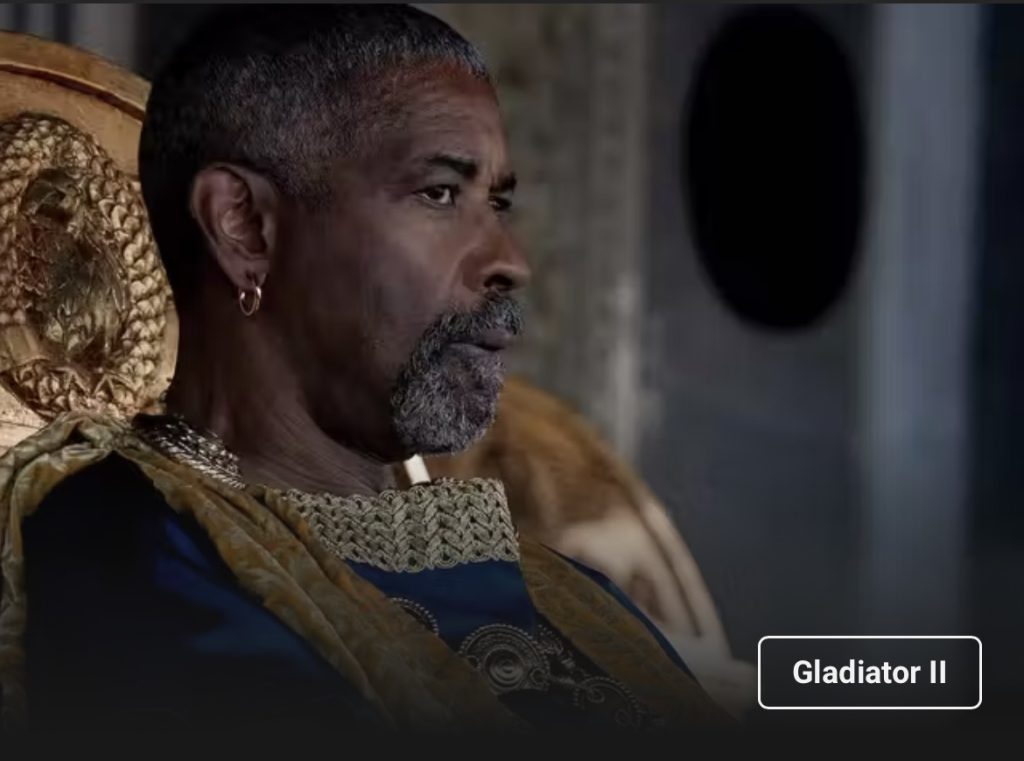
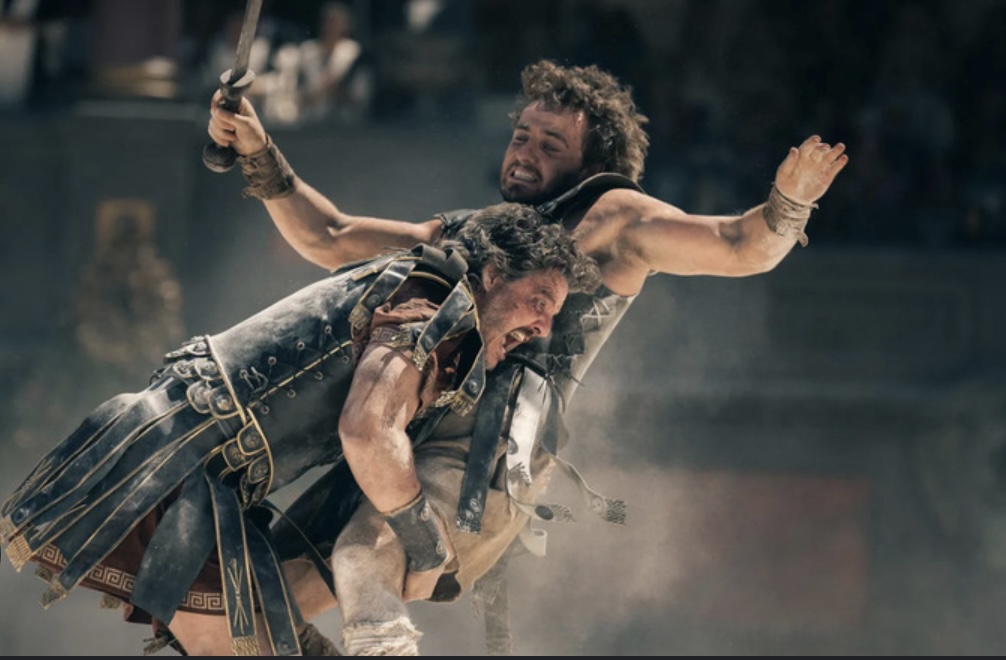
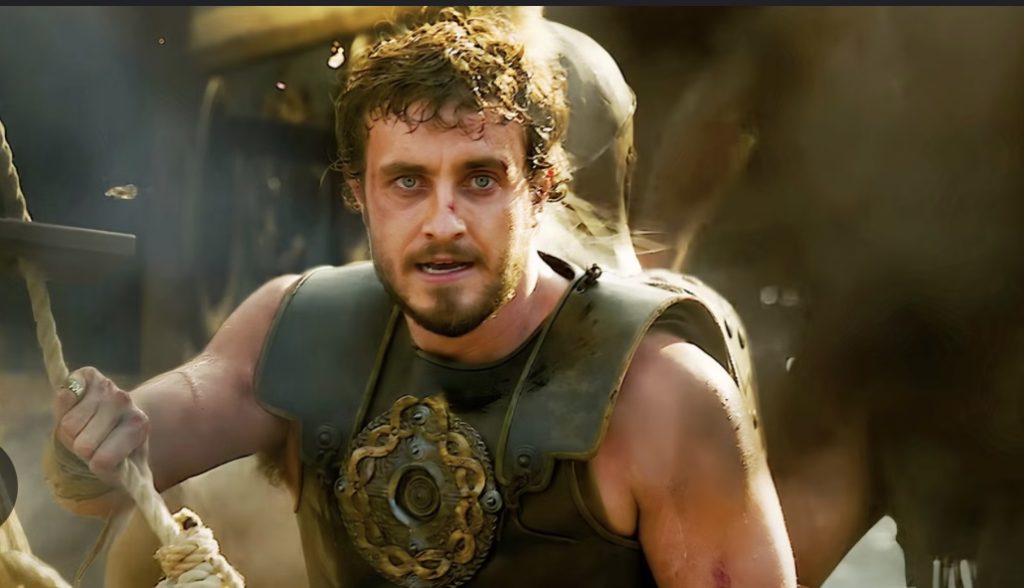
Finally, Lucius, the true heir of Rome, returns to fulfill the peaceful dreams of his grandfather, Marcus Aurelius, and his father, Maximus Meridius, restoring freedom and honor to Rome. He takes a brave stand. He confronts Macrinus and ultimately kills him to restore peace and justice. This showdown reflects many issues we face today, where power and greed often clash with the need for equality and fairness. Lucius’s actions show us that positive change can happen when good people stand up to corruption.
Moral Values:
This story highlights the power of sacrifice, courage, and enduring love. Lucilla’s heartbreak in sending her son away teaches us that true care often means letting go for the greater good. Lucius’s humble beginnings show that strength and character are not shaped by wealth or status but by resilience, determination, and the values we carry in our hearts. Ultimately, the tale reminds us that destiny can lead ordinary people to do extraordinary things, paving the way for peace, freedom, and a brighter future.
Timeless Lessons For A Modern World
The story of Gladiator is more than a historical epic; it is a blueprint for navigating life’s challenges with courage, integrity, and purpose. Maximus’s journey reminds us that:
- Corruption can be fought with accountability and ethical leadership.
- Adversity can be transformed into strength and purpose.
- Justice and equality are worth fighting for, no matter the odds.
- Loyalty and honor are timeless virtues that inspire trust and respect.
- Unity and community are powerful tools for overcoming shared challenges.
In a world filled with complexity and conflict, Gladiator’s lessons remain profoundly relevant. They challenge us to rise above personal trials, stand against injustice, and strive for a better future—not just for ourselves but future generations.
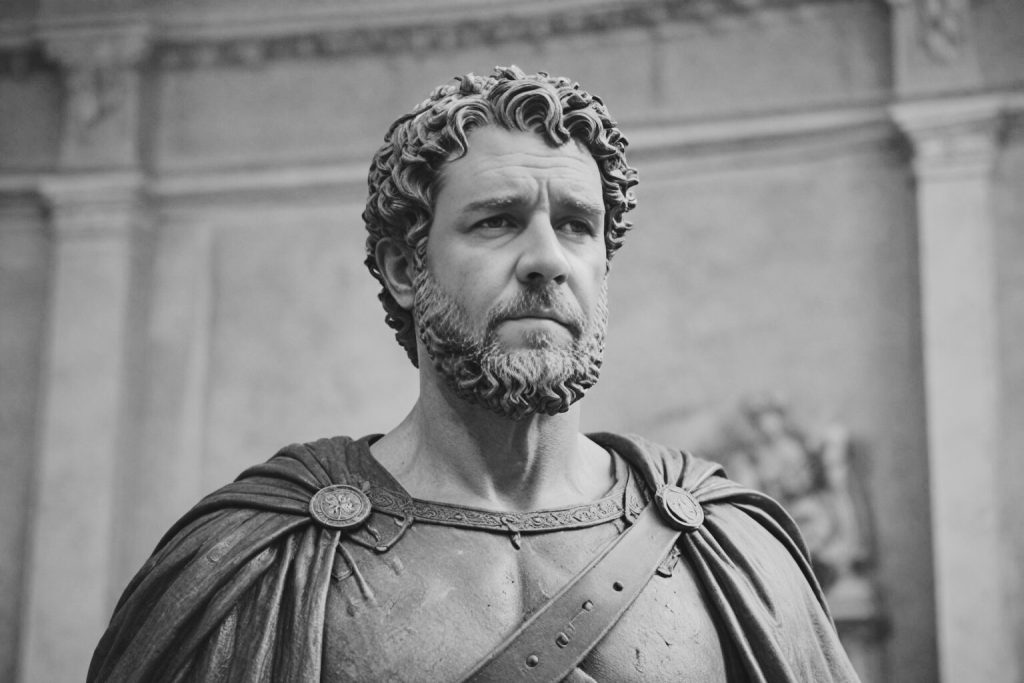
As Maximus himself said: “What we do in life echoes in eternity.” Let our actions today reflect the values we hold dear, ensuring that our echoes inspire others to live with integrity and courage.
